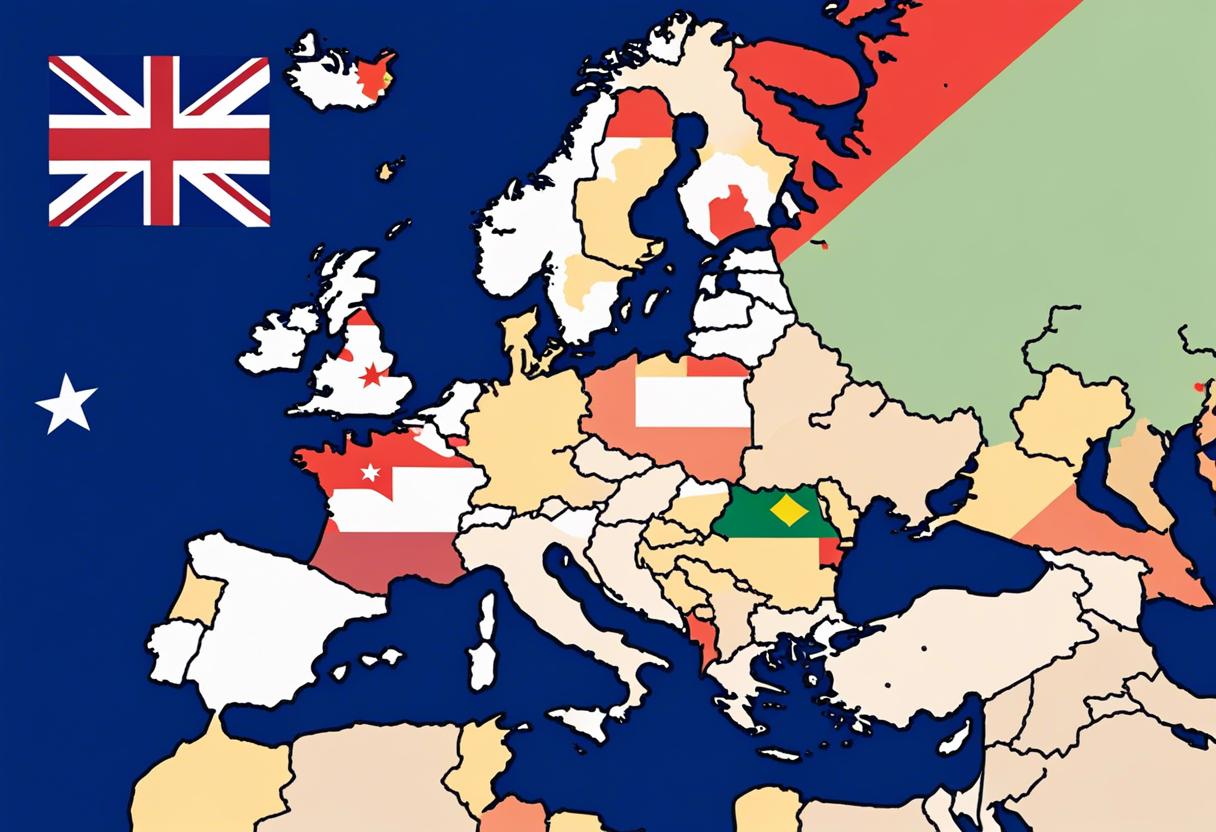Right-wing extremist and staunch nationalist factions have made substantial strides in the European Union elections taking place across Europe. Yet it is predicted that the political middle ground will retain its majority in the European Parliament.
Parties leaning towards ultra-conservatism and extreme right-wing ideology are leading the electoral race in several EU nations, including France, Italy, and Austria. Simultaneously, they’re securing the runner-up position in other countries due to resentment against mainstream political parties, partly driven by xenophobic feelings.
Following a hefty loss of his moderate coalition to Marine Le Pen’s National Rally, French President Emmanuel Macron initiated a quick parliamentary election. By framing the election as a referendum on Macron’s track record, the far right party secured almost one-third of the vote. This was double the number of seats won by Macron’s coalition, as indicated by exit polls.
The projected swing towards stern right-wing factions in the European elections was confirmed by exit polls and preliminary results released on Sunday evening. Still, the European People’s Party (EPP), which comprises MEPs from Fine Gael, is set to remain the dominant group in the parliament, securing a few additional seats. However, the Renew group, a centralist group that includes Macron’s party, could face a loss of up to one-fifth of its seats. Despite this, the Socialists and Democrats (S&D), currently holding the majority in parliament alongside the EPP and Renew, are predicted to sustain their support levels.
Survey results suggested that the far-right Alternative für Deutschland (AfD) would emerge as the second-largest party despite a tumultuous campaign littered with controversy. Meanwhile, Austria’s far-right Freedom Party is expected to head the poll and double its representation, and Geert Wilders’s Freedom Party is also predicted to secure several more seats in the Netherlands.
Prior to the release of official results, a projection based on exit polls and additional data indicated that the EPP, S&D, and Renew would secure enough seats to easily maintain their majority in the European Parliament. There is conjecture that the two EU parliamentary groupings standing for hard right and far right parties may attempt to restructure in the upcoming weeks to merge into a larger bloc and increase their sway in the next parliament.
In a significant reversal of fortune from their record-breaking success half a decade ago, the European Greens experienced a severe setback, predominantly within their German stronghold. It is predicted that they will rank below the Christian Democratic Union based in the centre-right, AfD, and the Social Democratic Party under the leadership of Chancellor Olaf Scholz.
Ursula von der Leyen, the President of the European Commission, is expected to rally a majority of Members of the European Parliament in her favour, as she anticipates a second term in the senior EU role, if endorsed by the heads of states as anticipated.
An estimated 360 million European citizens were qualified to take part in the elections, with an approximate voter turnout of 51 per cent.

